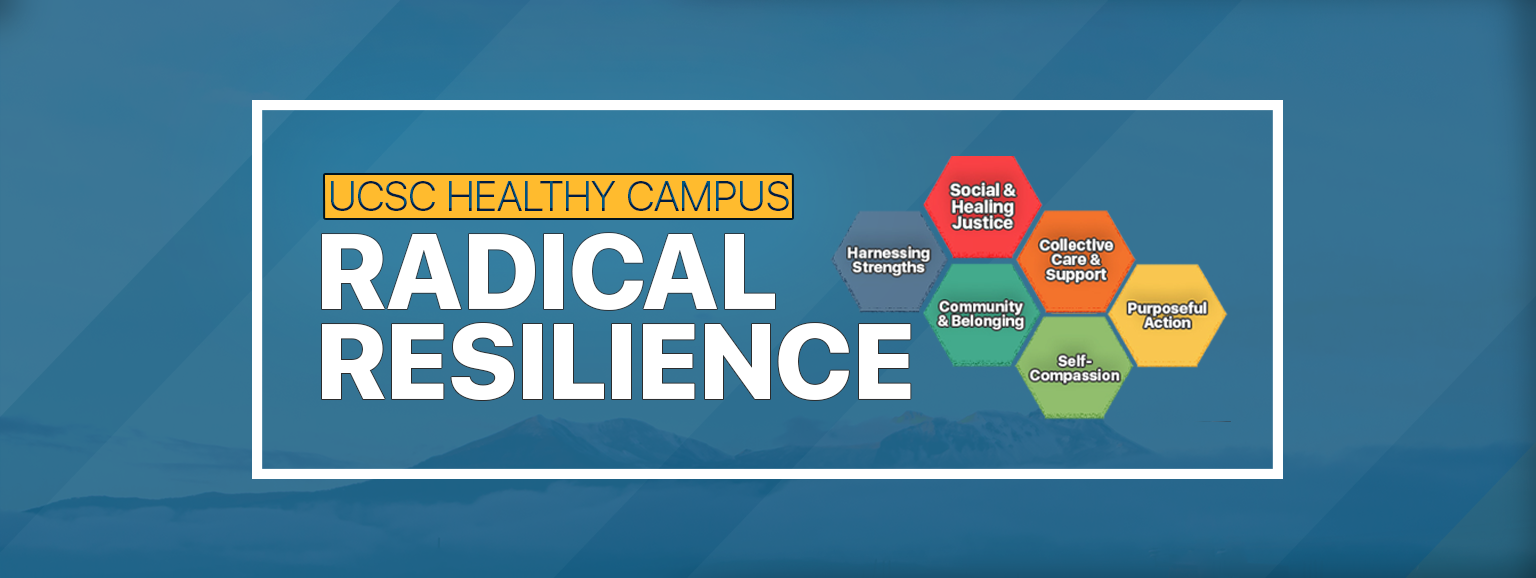With a commitment to social justice and recognizing that institutional and structural barriers negatively impact the mental health and well-being of our campus community, a working group composed of faculty, staff, and students launched the Radical Resilience initiative in 2019.
Why Radical Resilience?
UC Santa Cruz consistently ranks highest for student stress, anxiety, suicide ideation, and drug use compared to other UC campuses. This is an issue of concern for both graduate and undergraduate students. Staff surveys consistently rank UC Santa Cruz low on satisfaction and employee engagement. Faculty also grapple with stress and anxiety personally but also in supporting students in their classrooms.
A growing body of evidence supports building resilience practices into learning environments as a foundational and complementary method for coping with stress, anxiety, and depression[1]. Author, activist, and scholar, Loretta Pyles, in her book, Healing Justice: Holistic Self-Care for Change Makers, notes that self-care is an act of resistance to disconnection, marginalization, and internalized oppression. Transformative social practice is process-oriented social change and healing work seeking to alter existing political, economic, and social systems while also transforming individuals. For both sustainability and transformation, personal and collective practices of inquiry, care, and healing are necessary. In order to transform oppressive systems, we must heal ourselves and each other. Thus, we bring compassionate presence and understanding to ourselves, our families and communities, as we cultivate more authentic and deep relationships. We learn about our conditioning and our strengths and orient toward our personal and collective growth and transformation, both privately and in community. Learning to take better care of and heal each other and ourselves with compassion and commitment, could pave the way for the transformation of our organizations, communities and the planet.
Comprehensive programming will engage staff, faculty, and students both inside and outside the classroom. Campuses throughout the US are taking a similar, innovative approach.
Join the conversation. Contact Jessica Bulleri, Campus Wellness Program Manager, at jbulleri@ucsc.edu.
_________________
[1] Measuring Resilience as an Education Outcome. Danielle Patry and Reuben Ford, Social Research and Demonstration Corporation (June, 2016).

